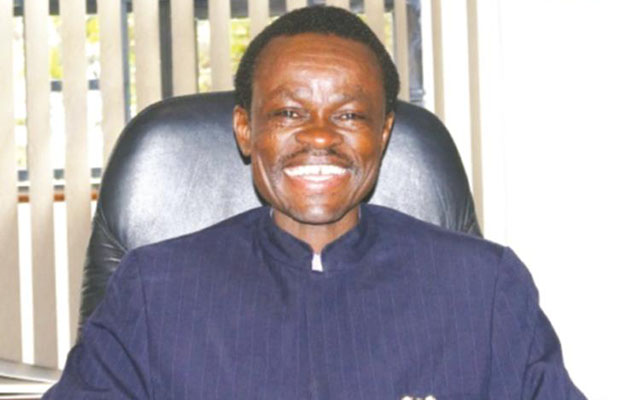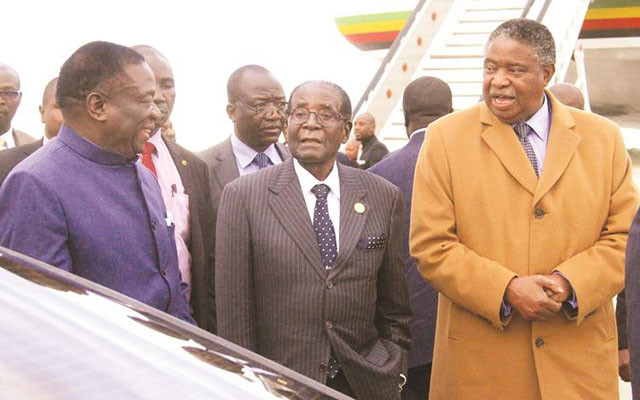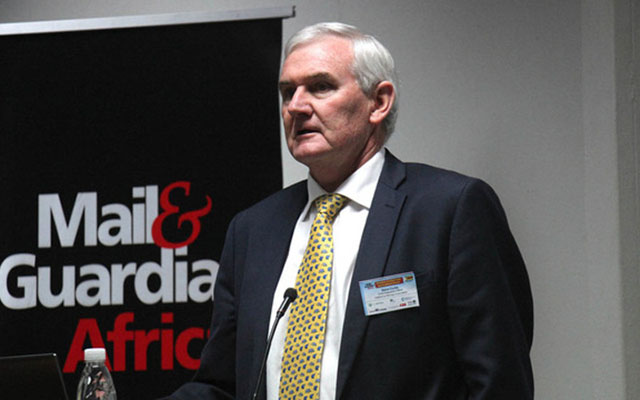Africa suffers from lack of ‘intellectual hygiene’

Panganai Kahuni Correspondent
An African scholar, Professor Pro Lumumba, defines intellectual hygiene as the ability of an academic to make an institution of higher learning produce academic individuals who are capable of creating valuable new knowledge beneficial to their society. I define intellectual hygiene as the consciousness of the academic to theorise on issues and come up with practical engineering patents that usher in economic development to a nation.
Africa is the second largest continent in the world. It is a continent that possesses the largest percentage of the world’s natural resources – gold, diamonds, silver, uranium, platinum, manganese, coal, oil, etc. Unfortunately, Africa, including Zimbabwe, is today economically under occupation, although I would have preferred to use the word militarily rather than economically. The fact is that none of the natural resources Africa is blessed with is under direct African control. Africa, with the abundance of highly educated people, some with professorial qualifications, does not know the value of the natural resources it possesses.
The tragedy is African universities continue to produce learned individuals who are vassals of neo-colonialism. All what most of Africa’s academics have come to master and achieve after acquiring those high class degrees is to accuse politicians using superlative verbiage. Such a scenario falls deeply in the pathway of Africa’s erstwhile colonisers who readily use such an opportunity to create neo-colonial agendas. This reminds me of Bob Marley’s song in which he urges us to “emancipate yourself from mental slavery”.
History tells us that Africa is the cradle of humanity and civilisation. However, with such a rich history how many of our political scientists preach and write for the Africa political students the theory of “ubuntu” or “hunhu”, popularly known as “ubuntuism/unhuism”? This is a political theory which is far richer than those Western philosophical theories such as idealism/realism that are largely written by Caucasians of European origin for purposes of expansionism.
It can be argued that idealism means it is ideal for Caucasians to expand their territories to other continents and places such as New Zealand and Australia. It can be argued that realism means it is real for Caucasians to control the wealth of the universe. This is what Africa needs to be thoroughly seized with and start unshackling itself from colonial bondage by applying its own political philosophy of ubuntu.
The education system in Africa needs to be revamped so that we do not see the mushrooming of foreign-owned and funded civil society organisations (CSOs) whose mandate is to champion a neo-colonial agenda. It is saddening to note that the majority of Africa’s educated people are recruited and become fronts for NGOs, CSOs/private media houses, etc. Those with professorial qualifications are infiltrated into political parties (ruling or opposition) to superlatively champion Caucasian neo-colonial agendas.
While it is plausible to have NGO, CSO, private media houses playing an oversight role to keep Government accountable, the question is who informs them on how, what and who to criticise and for what purposes? One is tempted to ask why Africa as a continent with the largest number of NGOs, CSOs and private media is still not political mature to know what is politically correct or wrong as is the case with the Western nations that fund these institutions of neo-colonialism.
The other question is how moral and sincere are the West in wanting to fund NGOs and CSOs in order to promote good governance and democracy which they failed to do during the colonial era and when they refuse to pay reparations for the rape of Africa?
The answer in my humble African view is there is no hygiene in our education system that speaks to the African needs. In that regard there cannot be any Western moral and sincere mind frame to establish an African government that would own its resources. There does not exist on the ground any Western moral correctness which demonstrates Western ethical interest to establish an African government that should revolutionalise its education system.
It is therefore the duty of African governments to make their nationals politically conscious of the need to create wealth for African citizens. Caucasians view allowing Africans full control of their resources as abominable. It’s like declaring Julius Nyerere and Kwame Nkrumah as saints of the Catholic Church for the good they did for the decolonisation of Africa.
It is therefore important for Africa to understand the need to “think without the box”, if I may quote Dr Tirivangana’s phraseology. China has developed fast and has become the world’s second largest economy by adopting the philosophy of “think[ing] without the box”.
Reverse engineering is highly prevalent in China but it is not taught in the universities of developing countries. China can now explore oil, refine it and use it for the benefit of Chinese nationals. China has become a reverse engineering hub and a huge manufacturing destination of cheap products with varying quality and prices.
The West has seen and established the Chinese economic threat to their global economic hegemony. With their (Western) obsession with wanting continued control of the global wealth, they have instituted a strategy of demonising Chinese products. Due to lack of intellectual hygiene, Africa has bought into this propaganda hook, line and sinker and is fronting this Western strategy with vigour.
Obsessed with the love of Western finished products, Africans now champion the rubbishing of Chinese products when Africa has no product to show. What a shame!
Africa, as St Nkrumah said, needs to start smelling the coffee and produce its own products before “Zhing zhonging” Chinese products whose production cannot be stopped. China started off with a well-defined “Command Agriculture” that was Government driven and has enabled China to be what it is economically today. Intellectual hygiene informed China how to carry out Command Agriculture with the Chinese characteristics of how that command production would be effectively done to allow economic development. Those who do not want to believe in this reality can go hang.
This philosophy in China was never politicised as we seem to see in political parties in Zimbabwe. China today produces enough food through a well thought out and envisioned “Command Agriculture” never interpreted by any of Chinese nationals to mean a strategy of wanting to grab power.
Intellectual hygiene informed China to house “Command Agriculture” in the Red Army where discipline was a national anthem never to be compromised. Intellectual hygiene informed China how to use productively its raw agro-materials for industrial development. Those who embrace Command Agriculture during the day, but tweeting during silent hours or when in the comfort of closed doors, need both intellectual and political hygiene if they are ever to motivate some of us not to think that they are agents of foreign institutions pushing a neo-colonial agenda in Africa.
It is time Africa joined hands and stop preaching of political nonsense that does not make Africa an industrialised continent. STEM, as an American concept which made America an industrial nation, can only be successful in Africa in general and Zimbabwe in particular when politicians and scientists understand the value of intellectual hygiene.
Both STEM and Command Agriculture are foreign concepts that can help Africa industrialise only if Africans morally value intellectual hygiene and apply these concepts to benefit Africa. Thus there is no need to personalise the STEM concept while attacking Command Agriculture for whatever reasons. While they both originated outside Africa, the idea is to use them profitably, making Africa industrialise.
The nobility of these concepts is not in how one chooses to personalise one of them while attacking the other but in on how wittingly they are both used for industrial growth as was the case in China, period.
- Panganai Kahuni is a political and socio-economic commentator








Comments